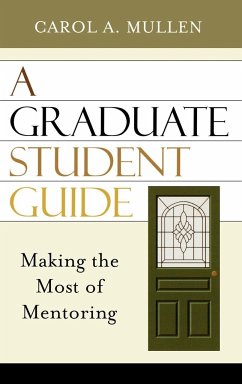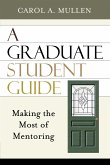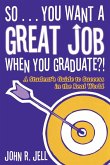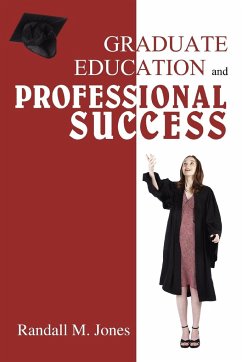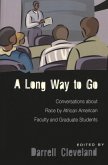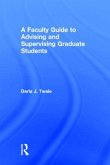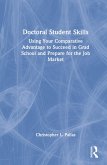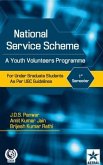Carol Mullen has done it again! A Graduate Student Guide will no doubt become an essential reference book in every graduate student's personal library. Brilliantly written, this volume speaks clearly about the many decisions required of doctoral students in navigating the often-stormy waters of mentor/mentee relationships inherent in graduate research environments. Through her history of commitment to graduate student success, Carol is now providing a far-reaching audience with her insights into the dynamic and transformational nature of mentoring relationships within the academy. I highly recommend this book to all graduate students and to all faculty members dedicated to bringing out the best in their collaborative inquiries. -- Thomas G. Nelson, professor of curriculum studies and qualitative research, Gladys Benerd School of Education, The University of the Pacific, Cali With this book you are about to embark upon an exciting journey, moving through open doors onto pathways that will enhance your role as mentee and mentor in the academy and in your professional life. Dr. Mullen takes your hand and leads you gently through and around the barriers that might hinder your success. She has used a unique blend of individual case studies, coupled with her research findings on mentoring experiences, to present a comprehensive perspective of reality. Carol has fashioned a crystal door into the academy that automatically opens at the touch of the hand, making transparent the graduate experience and entry into an academic career. -- Frances K. Kochan, professor of educational leadership, Auburn University, Alabama and former University Council for Educational Administration (UC Mullen ... shows how to make every minute (of mentoring) count, organize or join mentoring networks and programs, and practice mentoring and reciprocity. Reference and Research Book News The reader fortunate enough to come in contact with Carol Mullen's new book, A Graduate Student Guide, will soon realize that the text is so written as to function as a mentor in and of itself. Through an opening case scenario, each chapter explores some aspect of mentoring in higher education and includes lessons learned, practical, reflective exercises, and a glossary of terms for engaging the material. And like a good mentor, the warmth and support of the author radiates from the pages. Regardless of one's role in the academy or how experienced in mentoring one may or may not be, there is much to be learned in this exceedingly readable, yet well-researched guide to mentorship. In short, Dr. Mullen demystifies graduate education for both students and faculty as she explores 'the process of becoming successfully mentored and of mentoring effectively' (p. 167). This book is a 'must read' for new graduate students and for faculty dedicated to facilitating academic progress and professional development. -- Sharan B. Merriam, professor of adult education, University of Georgia, Georgia; three-time winner of the Cyril O. Houle World Award for Literature
Bitte wählen Sie Ihr Anliegen aus.
Rechnungen
Retourenschein anfordern
Bestellstatus
Storno

